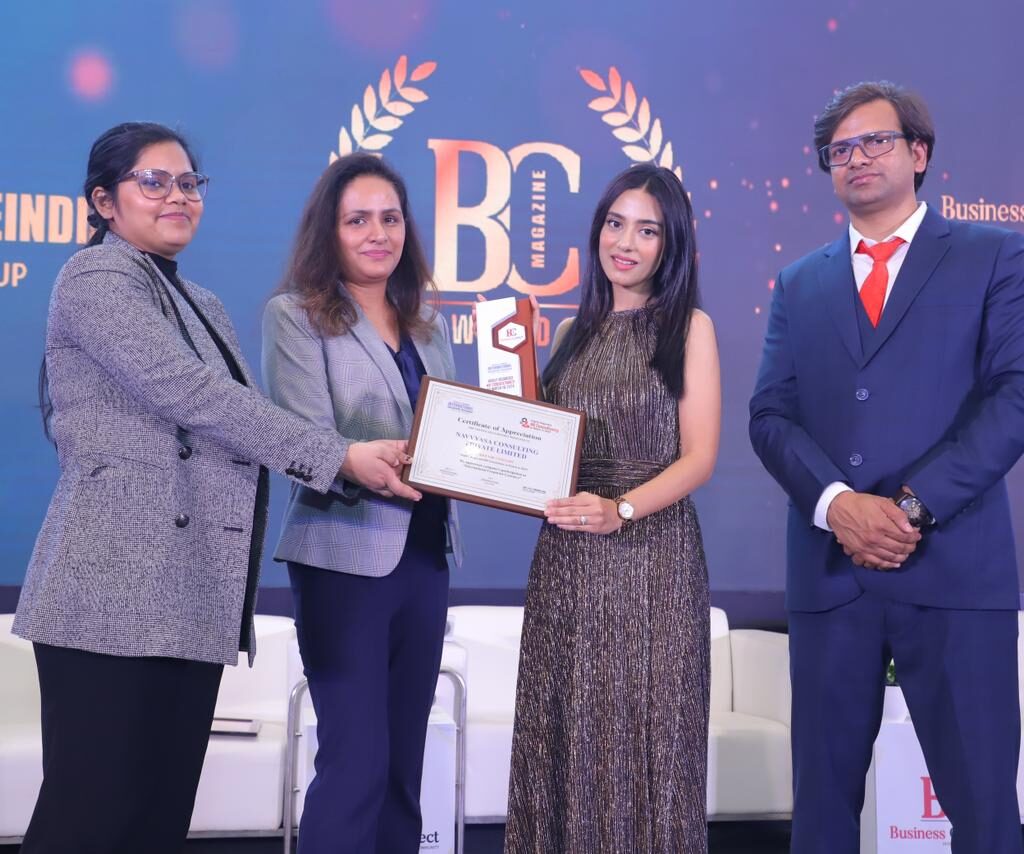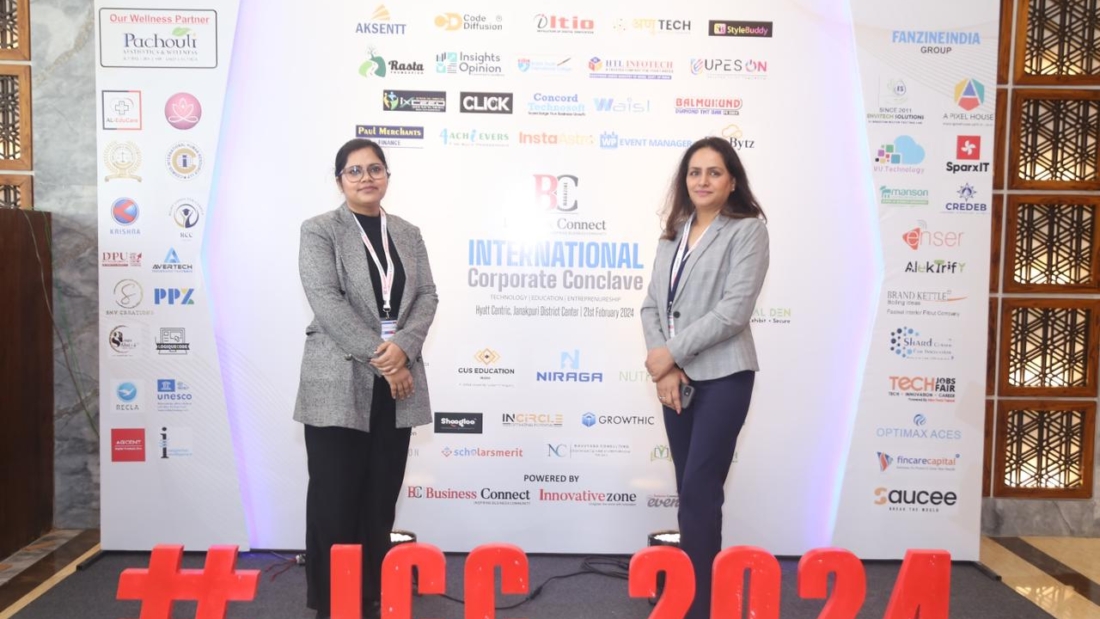India stands at the cusp of a new era. We are sprinting towards becoming the next global superpower, driven by a young, vibrant workforce brimming with dreams and aspirations. With one of the highest numbers of startups in the world—ranking third globally after the United States and China—India has indeed positioned itself as a burgeoning hub of innovation and entrepreneurship. However, in our race to the top, are we overlooking crucial aspects of workplace culture that may hinder our journey?
A Dream That Is Turning Sour
While the startup ecosystem and corporate world offer abundant opportunities, they come with a hidden cost. Employees, particularly those in high-growth sectors, are increasingly grappling with anxiety, stress, and burnout. Long working hours, intense performance pressure, and the lack of work-life balance are pervasive. As a consultant, I have witnessed firsthand the detrimental effects of these high-pressure environments. I regularly handle cases for clients where burnout, stress, and even mental health issues have become the norm rather than the exception.
More troubling is the recent trend of adopting a ‘hire and fire’ policy. In the pursuit of agility and short-term profitability, companies are quick to onboard employees and equally swift in showing them the door when targets are not met. This approach creates a toxic environment, breeding insecurity and apprehension among employees. It’s disheartening to admit, but I have often found myself in conversations with founders and CEOs, warning them that this policy is not sustainable in the long run. Sadly, many choose to ignore this advice until it’s too late, by which point the damage to employee morale and company reputation is almost irreparable.
The Neglect of the Experienced Workforce
In our obsession with the new and the young, we are overlooking a treasure trove of knowledge and experience. Employees over the age of 50 are often treated as outdated or irrelevant. This dismissive attitude disregards the wealth of experience and wisdom these seasoned professionals bring to the table. Not only is this approach short-sighted, but it also fosters an ageist work culture that ultimately deprives companies of valuable insights and mentoring opportunities that only experienced professionals can provide.
As a consultant, I urge founders, CEOs, and HR leaders to adopt a more humane, inclusive approach to work culture. Prioritize well-being, value experience, and cultivate a long-term perspective. Let’s create workplaces where dreams are not just born but are nurtured to grow, where employees thrive, not just survive.
Are we living in an echo chamber?
For innovation to foster and ideas to flow, a diverse set of voices is vital. The idea that diversity is a checkbox to tick rather than a long-term initiative to be taken to make room for all voices is detrimental to an organisation’s health.
As a manager or a founder or even a business owner, here are a few reasons why promoting diversity will be beneficial for your team, start-up, or business.
> Varied Perspectives – Living in a world where there is only one perspective, leads to decisions that are binary in nature and don’t appeal to a larger audience.
> Creativity – When you have people from all walks of life, it is bound to bring in fresh ideas from what they make of the world
> Culture Awareness – Understanding differences is the first step in building internal and external culture for your organization.
> Open Communication – The moment you open yourself and by extension your organization to diverse voices, open communication follows. Which helps in creating both trust in the teams and also building channels for honest dialogue.
This Pride Month and ahead – let’s have a celebration of diversity from the aspect of bringing diverse voices to the table.
Appraisal Cycles – Are you getting the best of them?
As the curtain falls on another appraisal cycle in India’s dynamic job market, let’s reflect on the buzz surrounding the direct connection between performance appraisals and compensation—a strategy brimming with valuable takeaways, particularly for the young professionals of today.
Imagine a scenario where your hard work doesn’t just earn you praise but tangible rewards that reflect your dedication. That’s precisely what happens when performance appraisals are tied to compensation. It’s a potent motivator, propelling you to exceed expectations, achieve milestones, and leave your mark.
Retention takes centre stage in this narrative. In a landscape teeming with opportunities, organizations are stepping up with competitive compensation packages directly linked to performance. It’s not just about retaining talent; it’s about demonstrating appreciation and value. This fosters a sense of loyalty that nurtures stability and growth within the workplace.
Yet, the most transformative aspect lies in the realm of improvement. When your efforts translate into tangible rewards, it catalyzes a cycle of continuous growth. It’s not merely about meeting objectives; it’s about constantly raising the bar, honing skills, and striving for excellence in a dynamic environment.
However, the flip side of the coin is the risk of feeling undervalued and unfairly treated. When employees perceive a disconnect between their contributions and the compensation they receive, it can erode morale and breed discontent. Therefore, it’s essential for organizations to ensure transparency and fairness in the appraisal process, addressing any disparities and ensuring that hard work is duly recognized and rewarded.
Transparency and fairness are the pillars of this paradigm shift. By aligning appraisals with compensation, organizations signal a commitment to recognizing and rewarding merit. This cultivates an environment of trust and equity, where every individual understands the rules of the game and has an equal opportunity to succeed.
As we bid farewell to another appraisal season, let’s distill these insights into actionable lessons: Your hard work should translate into tangible rewards that reflect your dedication. Loyalty is not merely expected but earned through recognition and value. And finally, improvement is not a destination but an ongoing journey fueled by clear incentives and boundless potential. Let’s embrace this strategic alignment as we navigate the exciting paths that lie ahead in our careers.
Training’s Revolutionary Impact on First-Time Managers
It might be nerve-wracking to enter the world of management for the first time. The stakes appear to be skyrocketing, the expectations are skyrocketing, and the duties are increasing. Amidst all this chaos and doubt, there is a glimmer of hope: training.
In the often chaotic world of leadership, training is more than just a necessary evil; it is a lifeline that first-time managers desperately need. Now that we’ve established that training is advantageous, let’s explore why it’s crucial for individuals starting this exciting new phase of their careers.
As a top priority, training gives new managers the skills they need to thrive in their roles. Leadership training equips participants with a wide range of skills, from improved communication to more effective methods of resolving conflicts. New managers can acquire the knowledge and self-assurance to face any challenge head-on by participating in interactive workshops, role-playing exercises, and studying real-world case studies.
In addition, training is like a map that shows managers the way through the complex landscape of organizational dynamics and best practices for management. Important components of creating a positive and productive work atmosphere include understanding team dynamics, developing effective methods of performance management, and mastering the art of delegation. Managers are better able to lead with transparency, equity, and compassion after receiving this training.
The most essential quality for good leadership is a growth mindset, which training helps to cultivate. The idea that leadership is a process rather than an endpoint is ingrained in the mind. We encourage first-time managers to take risks, learn from their mistakes, and grow into strong leaders through continuous training and professional development opportunities.
Fundamentally, effective leadership is built on training. In order to succeed in the ever-changing field of management, it equips students with the necessary knowledge, skills, and mindset. Therefore, all you first-time managers out there, seize the chance to learn, develop, and lead with assurance. Training is the first step on your journey; use it as a beacon to lead you to a better and more satisfying future.
Unlocking Success: The Reasons Why Startups Thrive with Human Resources Assistance from Subject Matter Experts
Within the ever-evolving realm of startups, each decision possesses the potential to determine success or failure. All facets, ranging from product development to marketing strategies, require careful consideration. However, an essential component that is frequently disregarded is human resources (HR). Although perceived expenses or limited resources may discourage some startups from investing in human resources, forming strategic alliances with organizations that specialize in HR can have a transformative effect.
Just consider the following:
1 .One should prioritize core competencies. By delegating HR complexities to professionals, startups can concentrate on their fundamental capabilities. Recent research indicates that 82% of startups encounter difficulties with HR-related responsibilities, which detracts from their primary business objectives.
2. Cost-effectiveness: As opposed to conventional wisdom, HR outsourcing can be economical. As an alternative to maintaining an internal HR department, startups can achieve a 30% reduction in operational expenses by capitalizing on the knowledge and skills of HR specialists.
3. Risk and Compliance Management: For startups, navigating employment laws and regulations can be daunting. Compliance is ensured through collaboration with HR specialists, which reduces legal risks and potential fines. 75% of startups, according to reports, face legal challenges as a result of HR noncompliance.
4. Flexibility and scalability: The HR demands of startups increase in tandem with their growth. HR outsourcing enables startups to expand without interruption, accommodating evolving needs without the burden of recruiting and instructing supplementary personnel.
Embark on your HR journey with Navvyasa by your side! Whether you’re a budding startup or a seasoned entrepreneur, we’ve got your back with our comprehensive end-to-end HR support services. From recruitment to employee engagement, we’re here to streamline your HR processes and drive success for your business.
Awards: Highly Regarded HR Consultancy To Watch in 2024 by Business Connect Magazine
2024 has just begun but our journey to achieve our goals began a lot earlier than today. It has been a journey which has led to the marrying of our understanding of HR and the gaps in the startup ecosystem and how we can bridge those gaps in our own entrepreneurial journey.
The recently concluded Business Conclave on 21st February 2024, where we got an opportunity to listen to both Policy Makers from Government of India and also Industry Experts about their own journey. Topics ranged from “Transforming India to Digital Innovation to the most used buzzword of today’s time AI.”

Speakers told of both their own journeys and experiences as well as how they see this domain shape up in the near future. The focus relied on making India more self-reliant and also to encourage skill development of the young population from towns and cities.
It was heartening to see Women Entrepreneurs tell their stories and how rewarding your own work is. There were multiple businesses coming to talk about their business from Turnkey Projects companies to Web Design to Software Development to Warehouse Fabrications.
The biggest moment for us would still have to be- being rewarded “Highly Regarded HR Consultancy to Watch in 2024” and with this award we march into 2024. As we move forward in the year, we surely aim to become the Highly Regarded HR Consultancy in 2025.
Why Is Employer Branding Necessary For Your Recruitment Efforts?
Recruitment has always run till very recent times on the belief that supply is more than demand. But as the war for talent continues and newer generations put work environment and salient benefits over monetary benefits, they have made recruitment a trickier business.
Before it was transactional where an employee gave in 9 hours and return took a market standard or higher compensation. Now it is about what is career progression planning, does the company supports the beliefs of the individual being interviewed, and whether the role itself lends to the personal aspirations of the candidates.
As rightly put by an HBR article, all organizations need to now have their three basic checks in place, what is the vision of the company and can that be trickled down to the employee base, what is the kind of talent that the company hires or the community that will be for the new hire and lastly how well does the role itself helps the prospective employee in their career and learning curve.
Although this does sound easy on paper, finding a cause that the employees can rally behind, a career progression plan that is equitable and fast-tracked enough for this newer workforce and a community of like-minded and talented individuals is not an easy task.
Having said that, if as a leader, whether a Start-up or a Legacy firm, working with your recruitment and HR team, and top management, can work out the three checks of what is your vision for the company, a learning and career path and finally the workgroup for your employees, it is easier to have your recruitment efforts lead to becoming the employer of choice.
It is always perceived that Employer branding is an external exercise but unless your employees are not becoming your brand ambassadors, the organization will always run on fumes of the three checks rather than having a great foundation backed by your talent.
Once the three checks are in place, all you need is to spruce up your candidate experience, where you become responsive and fast, your employee experience where the employee lifecycle is managed to provide maximum satisfaction to the employee, and an alum experience where your ex-employees will always feel part of the organization.
The Layoff Season 2024 Continues: Are you prepared for it?
Companies continue to lay off 8-10% of their workforce, especially in tech with YouTube, Discord, and Paypal. The latest is SpiceJet, the latest organization letting go of their tech and non-tech staff. Pairing with funding winters which continue to plague the start-up world, the employee. With Growth being replaced by Profit, the bottom line chase has impacted the employees significantly.
The rise of the number of employees in 2022 from 80,000 to twice, coming at roughly 164,969 tech workers and the number rising for non-tech workforce. Signs for the tides being turned and slowly the market becoming more employer-focused, the job seekers need to understand these new trends where job security has come out to be a myth.
There is a lot that can be done from your end to make yourself a star candidate for the current times –
- Have transferable Skills
Knowing your domain is excellent but having transferable skills that can be used in various industries will help you widen your net for prospective opportunities.
- Have a dazzling Resume
No matter what you do, have a resume that speaks for itself. It truly should represent not only what you have done so far but also your future career prospects.
- Network, Network, Network
It may seem redundant but having a professional network will always outweigh a good application. Here you already are a shoe in and all you need is to get through the interview process.
Build that network which acts as a security blanket.
- Mental Fortitude
It may seem as if every career coach, HR, or even one random LinkedIn account will give you the same advice, and that is to know that getting laid off in this economy has nothing to do with your talent or skill, it is simply an arbitrary decision. Keep your job hunt going before the final gong so to speak.
- Start your job hunt ASAP
This may seem counterintuitive especially if you like where you work, everything is hunky dory but having a backup would always add to your confidence and let you also see the opportunities available in the market.
These are only some ways to weather the storm that looms over the horizon, but also to bolster yourself with skills that are in demand within your domain, recessions come and go but knowing your worth and enhancing your skill will always be in trend.
Nurturing People & Culture: The Heartbeat of Startups
Rucchi Awasthi/28 July 2023
As startups set out on their ambitious journeys, the secret to their success lies not just in cutting-edge technology or disruptive ideas, but in their people and culture. In the fast-paced and ever-changing world of startups, a strong People & Culture strategy serves as the heartbeat that keeps the organization alive and thriving.
At the core of every startup are its passionate and talented individuals who bring ideas to life. Building a diverse and inclusive workforce is the first step towards fostering a culture of innovation and creativity. Embracing diverse perspectives leads to dynamic problem-solving and encourages out-of-the-box thinking.
A vibrant culture that aligns with the company’s values and mission is the driving force behind employee engagement and motivation. When employees feel connected to the organization’s purpose, they become brand ambassadors, going above and beyond to achieve collective goals.
In startups, where each member plays a pivotal role, recognizing and celebrating achievements becomes vital. Regular feedback and acknowledgment of individual and team efforts create a positive work environment and fuel a sense of accomplishment.
Startups thrive on agility and adaptability. An agile People & Culture strategy empowers employees to embrace change and take calculated risks. Cultivating a learning-oriented culture, where curiosity is encouraged, ensures that the workforce stays ahead of the curve, keeping the startup at the forefront of innovation.
The camaraderie and collaboration within a startup’s team are unparalleled. Leaders must prioritize building strong interpersonal connections and nurturing a sense of community. Team-building activities, open-door policies, and transparent communication channels foster trust and unity.
As startups grow, they often face the challenge of retaining top talent amidst intense competition. This is where the role of People & Culture becomes even more critical. Offering opportunities for professional development, career progression, and providing competitive compensation packages are key to employee retention.
Moreover, startups should prioritize employee well-being. Long working hours and high-pressure environments can lead to burnout. A holistic approach to well-being that includes mental health support and work-life balance initiatives is essential to sustain a happy and productive workforce.
In conclusion, People & Culture are the lifelines that pump energy and vitality into startups. By fostering a diverse, inclusive, and innovative culture, startups can attract and retain top talent, fuel creativity, and navigate through challenges with resilience. The heartbeat of startups lies not just in their revolutionary ideas but in the hearts of the people who believe in them. Embracing a strong People & Culture strategy paves the way for startups to leave a lasting impact on the world.










